
2017 Frontiers in Resilience Symposium
Developing Innovative Resilience Solutions
at the Interface of Science, Economics, and Policy
Join leading thought leaders, practitioners, and researchers in looking to the future of resilience. The Summit will explore resilience at the critical intersections of science and technology, policy and governance, and economics and finance. Cross-cutting session topics to include –
- Cyber Resilience;
- Urban and Community Resilience;
- Critical Infrastructure;
- Lifeline Sector Resilience; and
- Innovative Approaches to Resilience.
May 10-11, 2017, 8:30 AM – 5:00 PM
George Mason University, Arlington Campus
Founders Hall
3351 Fairfax Drive, Arlington, VA
Directions to Arlington Campus
Symposium Agenda
A final PDF version of the Symposium Agenda can be found at the link below. Please check back for updates as we add new speakers and sessions.
Agenda last updated: May 9, 2017
Featured Speakers
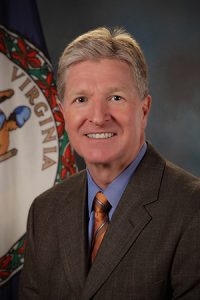
Brian J. Moran
Secretary of Public Safety and Homeland Security, Commonwealth of Virginia
In 2014, Governor McAuliffe appointed Brian Moran to be the first Secretary of Public Safety and Homeland Security in Virginia history. Secretary Moran oversees a portfolio of 11 state agencies and the Homeland Security and Resilience Staff Group. He serves as the Governor’s Homeland Security Advisor, charged with being the primary liaison to the Department of Homeland Security and the Virginia Fusion Center.
Secretary Moran has helped transform the homeland security grant process and continues to make cybersecurity a point of emphasis as we move into the digital age. In addition to homeland security, Secretary Moran is the Governor’s advisor for all criminal justice related issues; co-chairing a variety of Governor’s Task Forces including: the Parole Review Commission, the Task Force on Combating Sexual Violence and the Task Force on Prescription Drug and Heroin Abuse.
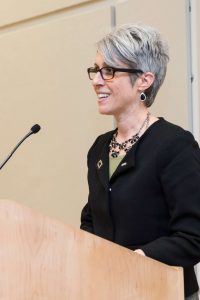
Susan Coller Monarez
Deputy Assistant Secretary for Strategy and Policy, Department of Homeland Security
Dr. Susan Coller Monarez is a globally recognized leader in today’s most active areas of homeland and national security. She currently serves as the Deputy Assistant Secretary for Strategy and Analysis in the Department of Homeland Security’s (DHS’s) Office of Policy. In this role, Dr. Monarez is responsible for leading the development, administration, and evolution of the Department’s strategy and analytic efforts, including ensuring alignment with Presidential and Secretarial priorities.
Prior to this position, Dr. Monarez served at the White House as the Assistant Director for National Health Security and International Affairs in the Office of Science and Technology Policy and as the Director of Medical Preparedness Policy on the National Security Council. In both White House roles, she led multiple efforts to enhance the Nation’s capabilities to prevent, respond, and recover from biological incidents and emerging threats, both natural and manmade. Dr. Monarez has led the development of several Presidential-level national strategies, action plans, and policy directives related to domestic and global security.
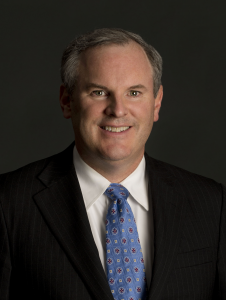
Stephen Flynn
Founding Director, Global Resilience Institute
Dr. Stephen Flynn is Director of the Global Resilience Institute at Northeastern University where he leads a university-wide research enterprise to inform and advance societal resilience in the face of growing man-made and naturally-occuring turbulence. He is a Professor of Political Science with affiliated faculty appointments in the College of Engineering and the School of Public Policy and Urban Affairs. Prof. Flynn is also Co-Director of the George J. Kostas Research Institute for Homeland Security at Northeastern. He has previously served as President of the Center for National Policy and spent a decade as a senior fellow for National Security Studies at the Council on Foreign Relations. In 2008 he served as the lead homeland security policy adviser for the Presidential Transition Team for President Barack Obama. Dr. Flynn was an active duty commissioned officer in the U.S. Coast Guard for 20 years, including two tours as commanding officer at sea. He is the author of The Edge of Disaster: Rebuilding a Resilient Nation (Random House, 2007), and the national bestseller, America the Vulnerable (HarperCollins 2004). He holds research affiliations with the Wharton School’s Risk Management and Decision Processes Center, and the Earth Institute at Columbia University. In September 2014 he was appointed by Secretary of Homeland Security to serve a member of the Homeland Security Science and Technology Advisory Council (HSSTAC). He is also a member of the National Security Advisory Board for Argonne National Laboratory. He holds the M.A.L.D. and Ph.D. degrees from the Fletcher School of Law and Diplomacy, Tufts University and B.S. from the U.S. Coast Guard Academy.
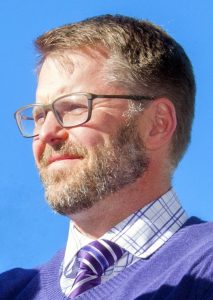
David Alderson
Director, Center for Infrastructure Defense, Naval Postgraduate School
David Alderson is an Associate Professor in the Operations Research Department and serves as Director for the Center for Infrastructure Defense at the Naval Postgraduate School (NPS). He is also a member of the NPS Cyber Academic Group, which has academic oversight of interdisciplinary cyber curricula on campus.
Dr. Alderson’s research focuses on the function and operation of critical infrastructures, with particular emphasis on how to invest limited resources to ensure efficient and resilient performance in the face of accidents, failures, natural disasters, or deliberate attacks. His research explores tradeoffs between efficiency, complexity, and fragility in a wide variety of public and private cyber-physical systems. Dr. Alderson has been the Principal Investigator of sponsored research projects for the Navy, Army, Air Force, Marine Corps, and Coast Guard.

Adam Rose
Research Professor, University of Southern California Sol Price School of Public Policy
Much of Professor Rose’s research is on the economics of natural and man-made hazards. He currently serves as an advisor on disaster resilience to the United Nations Development Progamme. He is currently working on DHS-sponsored studies on economic consequence analysis of radiological and biological threats, and on the economic impacts of U.S Customs and Border Protection institutions and policies. He recently completed studies sponsored by NSF and DHS analyzing the economic consequences of behavioral reactions to terrorism. He has served on a National Research Council panel on Earthquake Resilience, was the lead researcher on the Multi-Hazard Mitigation Council report to the U.S. Congress on the net benefits of FEMA hazard mitigation grants, and coordinated 8 studies to arrive at a definitive estimate of the economic consequences of 9/11. A major focus of his research has been on resilience to natural disasters and terrorism at the levels of the individual business, market, and regional economy.
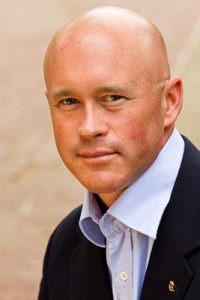
David Martin
Founder and Chairman, M-CAM Inc.
Dr. David E. Martin is the Founder and Chairman of M·CAM Inc., the international leader in innovation finance, trade, and intangible asset finance. He is the developer of the first innovation-based quantitative index of public equities and is the Managing Partner of the Purple Bridge Funds. He is the creator of the world’s first quantitative public equity index – the CNBC IQ100 powered by M·CAM. He is the Director of Innovation and Transformation at Melbourne Polytechnic and the Centre for Applied Innovation. Dr. Martin is the architect and founder of the Global Innovation Commons and is the author of the international legal framework for the Heritable Knowledge Trust and Heritable Innovation Trust programs. He has pioneered global programs to bring corporate and stock market transparency to multi-national extractive industries and has been instrumental in repatriating value to countries which have been subject to corporate and financial abuses. His work on ethical engagement and stewardship of community and commons-based value interests is at the forefront of global financial innovation. Dr. Martin is a Batten Fellow at the University of Virginia’s Darden Graduate School of Business Administration. He served as Chair of Economic Innovation for the UN-affiliated Intergovernmental Renewable Energy Organization and has served as an advisor to numerous Central Banks, global economic forums, the World Bank and International Finance Corporation, Allied Intelligence and Financial Security Agencies, and national governments.

Pete Tseronis
Founder and CEO, Dots and Bridges
Peter “Pete” Tseronis is an accomplished entrepreneur, business executive, and cybersecurity strategist with 25+ years leading myriad Cabinet-level and commercial entities, Pete is an ambassador for technological innovation and possesses the highest degree of effective communications and candor while applying progressive technologies to enterprise strategy. A thought leader with corporate savvy and substantive technical proficiency, Pete maintains a sophisticated aptitude for triaging analytics, organizational design, and infrastructure to manage supply-chain risk and enable global growth.
Pete maintains his passion for collaborating with government, industry, investor, and academic ecosystems to unearth and stimulate transformative innovation while increasing private-sector commercialization. Specifically, Pete’s fervor is to accelerate technology transfer within the sixteen (16) critical infrastructure sectors and drive value creation via data-driven insight.
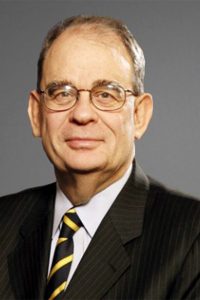
Alfred Berkeley
Chairman, Princeton Capital Management, Inc.
Director, Business Executives for National Security
Al Berkeley resumed the Chairmanship of Princeton Capital Management, Inc. in January 2013, a position previously held from 1996 to 2006. In 1996, Al was named President of NASDAQ Stock Market, Inc. and served as President until 2000 and then as Vice-Chairman until 2003. Prior to returning to Princeton Capital Management, Al was Chairman of Pipeline Financial Group, Inc. Earlier in his career, Al served as a software analyst at Alex. Brown & Sons where he was designated First Team All American analyst by Institutional Investor Magazine. As a General Partner of Alex. Brown & Sons, he served as the Firm’s Chief Information Officer. He has served as a Director of a number of public and private companies, institutions and non-profit organizations including Safeguard Scientifics, Policy Management Systems, Comshare, Cognos, Webex Communications, ACI Worldwide, Realpage, Edgar Online, The Nature Conservancy, The World Economic Forum USA and Johns Hopkins University among others.
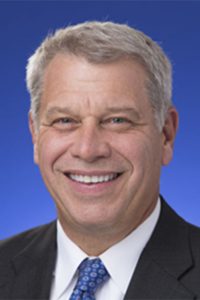
Mark J. Gerencser
Chairman, UMUC Ventures
Director, Business Executives for National Security
Mark J. Gerencser is Chairman of the Board of UMUC Ventures, focused on monetizing non-academic assets of University of Maryland, University College to lower tuition costs for adults and military service members. Previously, he spent 31 years with Booz Allen Hamilton as a recognized strategy and technology expert and senior partner. He led Booz Allen’s 20,000-consultant Government Business in the U.S. and abroad and, before retiring in 2013, served as the managing partner of its Global Commercial Business. He also created BAH’s Enterprise Resilience Practice and its Infrastructure Center of Excellence. Gerencser has since venture funded several start-ups, including PC services company CyberSpa, and encryption and networking company, Welbeck Security. He serves as an independent director on the corporate boards of Alion Science and Technology, Sotera Defense Solutions, and Orion Systems Integrators.
